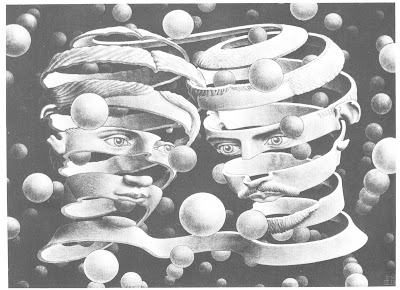Continuing a basic summary of the four books of Patanjali's Yoga Sutras, by Rama Prasad, with some suggestive observations of an esoteric nature, from the introduction to his translation: Patanjalis Yoga Sutras with the Commentary of Vyasa and the Gloss of Vachaspati Misra (1912). See Part 1
The Third Chapter gives a description of this Antarangayoga. The Dharana, Dhyana and Samadhi are collectively called Samyama.
When the stage of catalepsy is reached, the Yogi fixes his mind on any particular portion of his body. This holding the mind in a particular part is Dharana or concentration.
The continuation of the mental effort to keep the mind there Dhyana or meditation.
This meditation (Dhyana) turns into Samadhi or contemplation when the Self is lost as if it were, the object of meditation done remains in the mind and shines out alone.
This Samyama-concentration, meditation and contemplative trance- is the great instrument of acquiring all knowledge of supersensuous verities. It is the strong searchlight of the mind which turned on any object, reveals its inmost core. It is the great light of wisdom-Prajnaloka.
This Samyama must be applied to plane after plane of nature, physical, astral, mental, &c . One cannot jump to a higher plane, leaving an intermediate plane---the progress is gradual.
The Yogi who has mastered Samyama as regards a higher plane should not desecrate this faculty by employing it in lower planes. He who by Samyama has learnt communion with God, should not waste his faculty in thought-reading, clairvoyance, bringing messages from the dead to the living or vice versa. He should not squander his energy in hunting up the past records in the astral light, nor the shadows of the future in the Brahmic Idea.
What is the state of mind in Samadhi and Nirodha? Is it a state of perfect quiescence of the mental body? As regards the mental body it is a state of perfect stillness so far as the vehicle is concerned, but it is a state of great molecular motion in the mental body itself. The molecules of the mental body are thrown in a very high state of vibration, though the body in all appearance is in perfect calm. This vibration of the molecules of the mental body, becomes by practice, rhythmic and this rhythmic flow is the mental peace of Samadhi. The swing of the vibration lies between one-pointedness and all-pointedness-- between the contraction to a point and expansion to embrace a whole universe. That which appears to be the stillness of Samadhi is perhaps the highest activity possible. Even what is called one-pointedness is itself a state of utmost activity. When the mind is one-pointed it does not mean that one idea is indelibly impressed on the mind like an engraving on a stone, but that the mind is working so quickly that the image of one is formed in no time as it were, destroyed in no time as it were, and formed again. This quick succession of the same form is one-pointedness. In ordinary states one idea is followed by another idea. In one-pointedness the same idea vanishes and re-appears again and again. Thus what is called fixing the mind to a thought is really making the mind reproduce one thought over and over again, in the utmost quickness of succession, without the intrusion of any foreign thought.
The Third Chapter then gives a list of psychic powers and how to acquire them by applying Samyama. The power of knowing the past, present add future is by making Samyana on three-fold modifications which all objects are constantly undergoing (III. 13). Methods are laid down as how to acquire the memory of past births, how to read the thoughts of others, how to disappear from sight, how to get strength, how to see through closed door, how to know the solar system and astronomy, &c. These methods have a meaning only for him who knows the practice of Samyama. Without that no amount of thinking on the solar plexus will give one knowledge of internal anatomy, &c.








